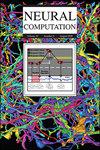非规范化继承表征的联想学习
IF 2.7
4区 计算机科学
Q3 COMPUTER SCIENCE, ARTIFICIAL INTELLIGENCE
引用次数: 0
摘要
众所周知,后继表征与在时间情境模型中学习到的时间关联有关(Gershman 等人,2012 年),随后的研究表明,后继表征在空间、视觉和抽象关联任务中具有广泛的相关性。我的研究表明,后继表征和纯联想学习之间的关系比最初所显示的更为深刻:海比时间联想是后继表征的一种非规范化形式,因此只要所有状态的出现频率相同,两者就会趋同于一个相同的表征,而且即使状态分布不均匀,两者在实践中也能高度相关。本文章由计算机程序翻译,如有差异,请以英文原文为准。
Associative Learning of an Unnormalized Successor Representation
The successor representation is known to relate to temporal associations learned in the temporal context model (Gershman et al., 2012), and subsequent work suggests a wide relevance of the successor representation across spatial, visual, and abstract relational tasks. I demonstrate that the successor representation and purely associative learning have an even deeper relationship than initially indicated: Hebbian temporal associations are an unnormalized form of the successor representation, such that the two converge on an identical representation whenever all states are equally frequent and can correlate highly in practice even when the state distribution is nonuniform.
求助全文
通过发布文献求助,成功后即可免费获取论文全文。
去求助
来源期刊

Neural Computation
工程技术-计算机:人工智能
CiteScore
6.30
自引率
3.40%
发文量
83
审稿时长
3.0 months
期刊介绍:
Neural Computation is uniquely positioned at the crossroads between neuroscience and TMCS and welcomes the submission of original papers from all areas of TMCS, including: Advanced experimental design; Analysis of chemical sensor data; Connectomic reconstructions; Analysis of multielectrode and optical recordings; Genetic data for cell identity; Analysis of behavioral data; Multiscale models; Analysis of molecular mechanisms; Neuroinformatics; Analysis of brain imaging data; Neuromorphic engineering; Principles of neural coding, computation, circuit dynamics, and plasticity; Theories of brain function.
 求助内容:
求助内容: 应助结果提醒方式:
应助结果提醒方式:


